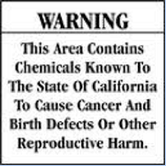I love owning and managing rental property all over the world. It has provided for a nice living and given me great satisfaction in being able to offer steady employment to many people and contributing to the betterment of communities through our pride of ownership management style.
At the same time however, it is important to understand that as a landlord/property manager, you are a target and must protect yourself. While I know many who spend a lot of effort in elaborate ownership techniques which often times include showing mortgages (from another non-obvious owner controlled entity) in excess of the property value to make lawsuits more difficult, I have simply chosen to hold most of my properties in different limited liability companies and do my best to navigate smartly in operations.
I am going to share some of the issues that I have witnessed or experienced in our business that deserve your attention. Remember that failing to prepare is preparing to fail.
1. Keeping your property in good condition
While I’m sure you have property insurance that covers many liabilities, in an effort to ensure safety, keep residents happy, lessen your headaches and keep your policy premiums as inexpensive as possible, I recommend a system to monitor your property’s condition. At a minimum, someone should visit your property monthly (preferably weekly) and inspect the physical condition. Furthermore, at least one time per year, the interior of the units should be inspected. For both types of inspections, it is positive to have a checklist of items to be reviewed. For example:
a. Trip and fall hazards – sadly there are people looking for this type of liability so that they can try and collect money from your insurance company, even if they aren’t residents of your property (I was amazed when I was sued by a stranger “visiting” my property even though she didn’t know anyone living there). Identify and grind or correct any lifted concrete over ½” as well as any cracks or divots in your driveway or sidewalks.
 A trip hazard of over ½”
A trip hazard of over ½”
b. Correct all “growth” from water intrusion or lack of ventilation in your units. Almost all insurance companies see this type of claim as non-corrected deferred maintenance of the ownership/management. I always identify how the water intruded or steam wasn’t ventilated and then deal with the growth. We immediately jump on this type of complaint whether found on our annual inspection or if reported by the resident.
 Growth in a kitchen caused by a plumbing or roof leak above
Growth in a kitchen caused by a plumbing or roof leak above
2. Wage and hour complaints
Hiring people to care for your property the old fashioned way of a free or reduced rent unit on a handshake opens you up to huge liability. If you self-manage, consult an employment attorney and have them advise you on the appropriate contract, reporting/record keeping, insurance and tax withholding necessary. I know people who have had to come out of pocket for many hundreds of thousands of dollars on this claim in California. Some of my colleagues make managers and maintenance people independent contractors in an effort to save money and headache. I think this is a very dangerous approach and am always quick to pay for good legal advice before a claim is made.
3. Insurance coverage by your contractors
I have never met a rental property owner who doesn’t watch his or her expenses closely. We are all looking for the best deal in paint, carpet, plumbing, roofing and general maintenance work. When I started in the business with my first rental house in 1991, I didn’t check to see if the people I hired had worker’s compensation and liability insurance. Even though it almost always costs more, I will only use vendors who are properly insured and give me proof of coverage. If they do not, you are essentially self-insuring them for woker’s comp and liability and one claim could cost you massively both financially and emotionally.
4. Property Postings
Depending on the country and state, there are always some laws regarding postings and notices that you must have on your property. An example is California’s Proposition 65 posting on rental property (Figure 1 is a sample posting). My suggestion is to join a local association (there are many for apartment owners) and stay up to date on laws and regulations effecting your investment. Even if you contract with a property management firm, it is incumbent upon you to know whether they are handling your property as it should be.
Figure 1

I look back over my 21 years of rental property ownership and management and I’m amazed by how many things I didn’t know. While ignorance is bliss, knowledge is power and will make property ownership far more pleasant and profitable.
Kyle Kazan
Chief Economist
Contrarianomics
www.contrarianomics.com

